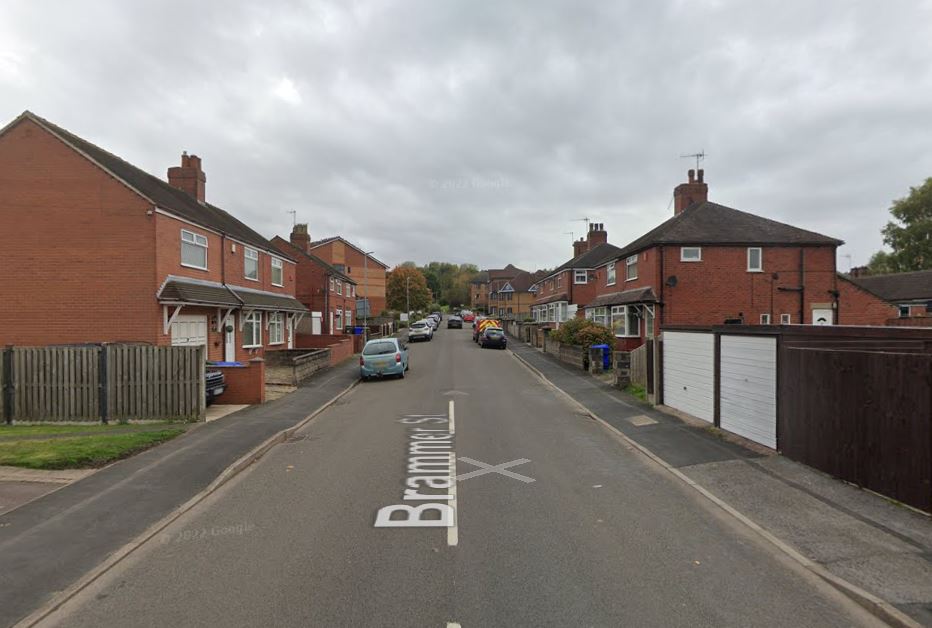Renovator hit with £2,800 'double' council tax bill after buying empty property
The homeowner says anyone buying a derelict property to renovate could also be hit with the charge too — going against the whole purpose of the extra charges

A property developer who bought an empty derelict home to renovate has been hit with an eye-watering £2,800 'double' council tax bill.
Ray Plant, from Burslem, Stoke-on-Trent, fell foul of UK Government legislation designed to stop owners from leaving properties sitting empty.
Now he has accused Stoke-on-Trent City Council of “ripping him off” and says the penalties will discourage other developers in the city from renovating a house in the area, as well as being at odds with why the extra charges were introduced in the first place.
Why was the renovator given a £2,800 council tax bill?
Mr Plant bought the two-bed Bradeley semi for £100,000 but because it has been empty for more than two years, it is subject to the empty home premium. So his Band B £1,397.67 council tax charge has now doubled to £2,795.34.
The 54-year-old told the Stoke Sentinel: “I agree with the legislation, it’s getting the properties back into use. But to penalise the person that goes on and does it, I find it disgusting.
“The neighbours hated the way the house looked, the council was not going to do anything about it, and then I came along and now they’re doubling my council tax.”
Mr Plant says there should be a six to nine month grace period after the house has been sold, if the home has been subject to this charge previously.
Get the Homebuilding & Renovating Newsletter
Bring your dream home to life with expert advice, how to guides and design inspiration. Sign up for our newsletter and get two free tickets to a Homebuilding & Renovating Show near you.
He added: “You have this amount of time to bring it back into use, otherwise you’ll be charged for it too. That seems the fair way.”
How did the council justify doubling his council tax?
Council boss Abi Brown said: “The council is keen to see empty properties brought back into use, however, unfortunately some owners allow them to remain empty for many years, blighting neighbourhoods and causing anti-social behaviour.
“A number of years ago we - along with many other councils - started to utilise our ability to increase council tax bills on empty properties to encourage such owners to bring their properties back into use.
“This was well publicised at the time with further details available on the council website, and we would always advise that potential property purchasers should make enquiries about council tax during the purchasing process.
“We have advised Mr Plant that if the property is uninhabitable, he can apply to the valuation office to have the property removed from rating for council tax.”
Why was the empty home rule was originally introduced?
Since 2013, local authorities can charge a premium on a class of property that has been unoccupied and unfurnished for two years or more. The premium can be up to 100% of the council tax on the property.
This increases to 200% for properties empty between five and 10 years, and then soars to 300% for buildings empty for more than a decade.
The legislation is in place to allow authorities to charge a premium to penalise developers and homeowners for leaving properties vacant for an extended period, not to penalise owners of property that is genuinely on the housing market for sale or rent.
While the decision to increase council tax is down to authorities, UK Government guidance states that due consideration should be given to the health of the local housing market when making a decision.
Latest government data shows that over 238,000 homes in England have been empty for over six months. In all, over 600,000 homes are currently vacant.
Add in over 67,000 holiday lets and 253,000 second homes and total vacancy sits at around a million homes, meaning that across England 1 in every 25 homes is without residents.
Long-term empties are now at their highest level since 2011 (although bear in mind that this is 2020's pandemic-related data).
The data excludes council tax exempt empty homes, which number almost another 200,000 in total and include so-called 'legitimate' or 'naturally occurring' categories - for example empty homes as a result of the owners death (around 121,000 nationally).
Sam is based in Coventry and has been a news reporter for nearly 20 years. His work has featured in the Mirror, The Sun, MailOnline, the Independent, and news outlets throughout the world. As a copywriter, he has written for clients as diverse as Saint-Gobain, Michelin, Halfords Autocentre, Great British Heating, and Irwin Industrial Tools. During the pandemic, he converted a van into a mini-camper and is currently planning to convert his shed into an office and Star Wars shrine.

